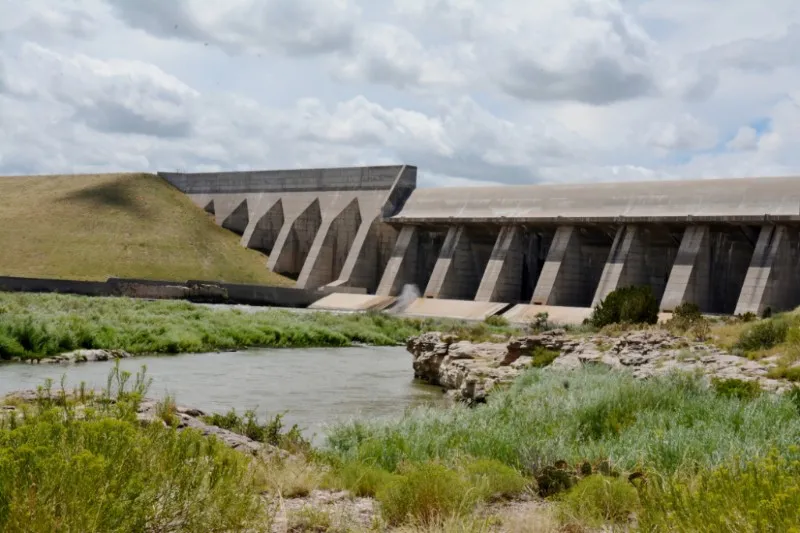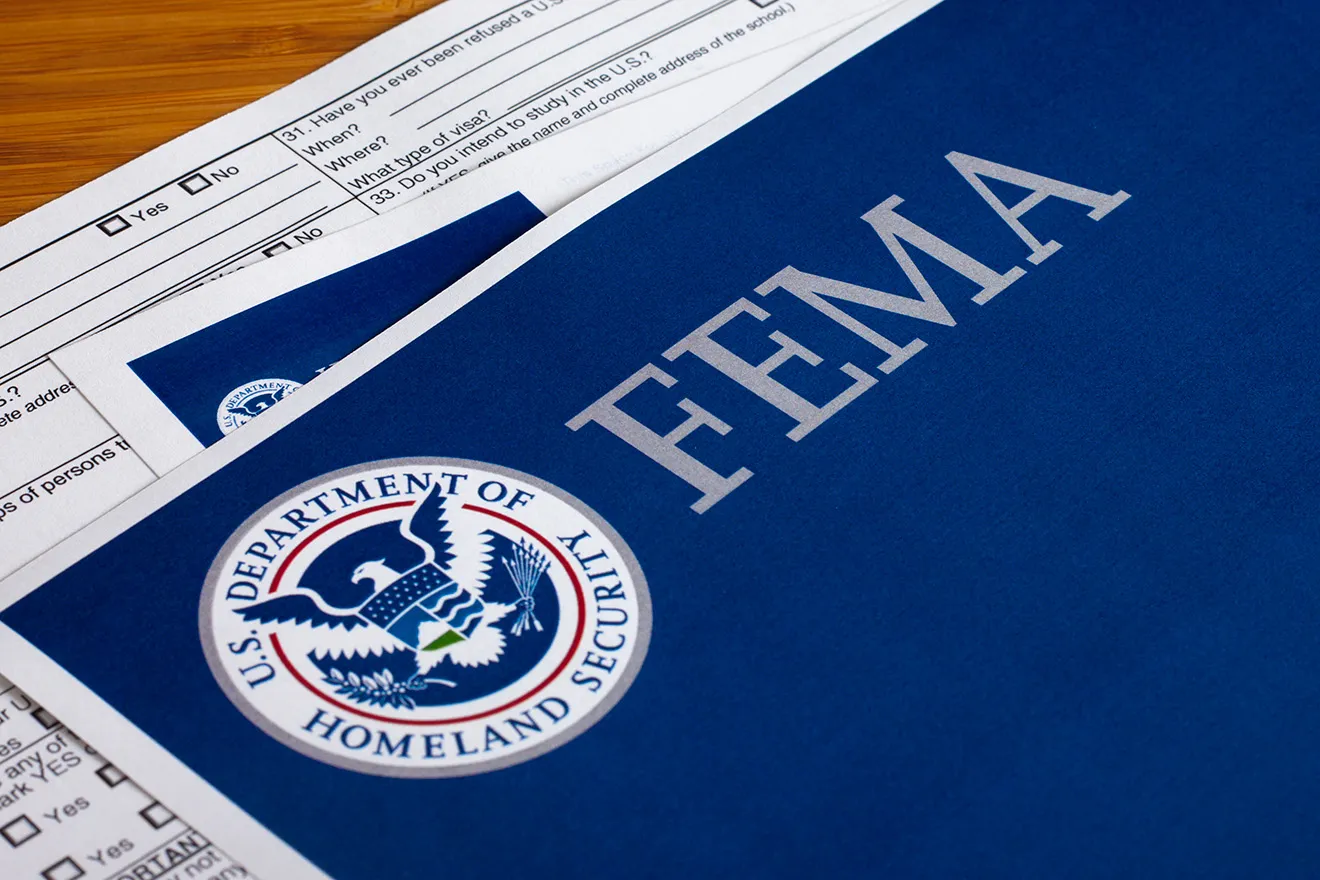
Daily Audio Newscast Afternoon Update - April 22, 2025
© INDU BACHKHETI - iStock-1336427297
News from around the nation.
Sen. Elizabeth Warren says we're 'starting to see the cracks of fear' in Trump after latest Pete Hegseth scandal; an Earth Day twist: Trump could 'target' climate nonprofits; spring cleaning for Earth Day? What to do with leftover paint; Dogs become 'Pawsitive Partners' in NC prisons.
Transcript
The Public News Service Tuesday afternoon update.
I'm Mike Clifford.
While the Democratic Massachusetts Senator was exasperated enough to wonder, "What's it going to take for Donald Trump to fire this guy?"
Yahoo News reports that Elizabeth Warren saw a silver lining in the latest scandal involving Trump's Secretary of Defense, Pete Hegseth.
She said, "We're starting to see the cracks of fear in Trump."
That's what she told Katie Couric on Monday.
Yahoo reports Hegseth, of course, is mired in yet another scandal involved in his disregard for national security.
On Monday, he was exposed as having discussed highly classified information with his wife, brothers, and other members of his inner circle, none of whom have clearance.
An Earth Day, usually a cause for celebration by non-profit groups, working to reduce the impact of climate change.
But this year, they're speaking out about the possibility that President Donald Trump could try to revoke their tax-exempt status.
One change could include removing climate change as a qualifying topic for being non-profit.
Last week in the Oval Office, Trump hinted the administration might scrutinize the tax status of environmental organizations, although federal law currently bars a president from directly or indirectly ordering the IRS to investigate specific tax-exempt groups.
Joelle Novy, with Interfaith Power & Light, says people should be alarmed at the prospect.
The very idea that the president could interfere with the C3 status of any group, it's an insult to our freedom as Americans to come together through organizations to be who we are.
In Maryland, groups like the Chesapeake Climate Action Network are watching these developments closely.
Being tax-exempt allows organizations to receive tax-deductible charitable contributions and to pay no federal income tax.
I'm Simone Perez.
And on Earth Day, one easy way to help the environment is to make sure your leftover paint is put to good use.
The paint care program allows you to recycle paint for free by dropping off the leftover paint at more than 800 sites across the state, mostly in paint and hardware stores.
Terri Marsman is California program manager for the non-profit Paint Care, which was established by paint companies.
If we can reuse it, we will.
So anything that's dropped off that's good quality that we can give back out to the public, we will do that.
Anything that we cannot reuse, we will send it off to be recycled.
To find the drop-off site closest to you, go to paintcare.org.
I'm Suzanne Potter.
Next to North Carolina, where some correction facilities are rehabilitating people in prison with the help of four-legged friends.
One example is the Positive Partners Prison Program from Monty's Home, which is partnered with the Pender Correctional Institution in southeastern North Carolina.
Monty's Home founder and president is Barbara Rapp.
The guys have a schedule.
They go down at like 7 in the morning, get the dogs out, walk them, feed them.
Then they go back down at like 11, and they bring them up to socialize in the buildings about.
It's known collectively as a new leash on life.
People incarcerated in the state help train dogs to prepare them for adoption.
This is public news service.
And a new report shows Montana receives a larger share of federal funding than the national average, and the impacts of continued cuts could be dramatic.
For every dollar Montana contributes in federal taxes, the state receives $1.40 in return, according to the Montana Nonprofit Association report.
In 2024, that totaled over $14 billion dispersed.
That number is tracking down for 2025, as President Donald Trump and Elon Musk make more cuts in the name of government efficiency.
Adam Jesperson with the Montana Nonprofit Association warns even micro-reductions would have dramatic impacts.
We're all for eliminating waste, fraud, and abuse.
But those conversations need to be had with care, with planful action, and with communication around the what and the why and the how.
Federal funds reach Montanans through federal jobs, nonprofits, social programs, and state and local government revenue, as well as the services they provide.
Those include aid to schools, farms, housing, infrastructure, health care, and more.
I'm Kathleen Shannon.
Next to Indiana, where a nonprofit tasked with protecting domestic violence survivors now faces a backlash from former staff who say it harmed the black women it claimed to support.
Neal joined the Domestic Violence Prevention Network in 2021 to help other survivors.
She said the group used her identity to attract donors, paid her less than her predecessor, and dismissed her concerns.
Neal said she resigned in 2022 after the director suggested serving fried chicken at a Thanksgiving event in a black neighborhood.
Hearing that, it was just like, this is the last straw.
Neal filed a federal discrimination complaint months later, calling her time with the group damaging and dehumanizing.
The network's board president said an investigation found no illegal activity.
This story was produced with original reporting from Mary Claire Molloy for Mirror Indy.
I'm Joe Ulari, Public News Service.
Finally, April is National Native Plant Month, and observers at the core of South Dakota's identity.
South Dakota's prairies often conjure up images of species like tall grass, which have deep roots that are good at absorbing water.
But some varieties haven't fared as well due to different types of land use.
The World Wildlife Fund says only 53 percent of the Great Plains region's grassland remains intact.
Drew Anderson operates a farm near Lemon where he conserves native plants.
He says every little bit helps, and they don't have to just grow in rural settings.
There's just a growing appreciation for the native grasslands that are making their way into urban areas.
People are using big blue stems in front of commercial buildings and places like that.
In a survey commissioned by the group, there was broad bipartisan support among voters to prioritize effective grassland management.
I'm Mike Moen.
This is Mike Clifford for Public News Service, member and listener supported.
Hear us on radio stations big and small, your favorite podcast platform.
Find our content and trust indicators at publicnewsservice.org.

















